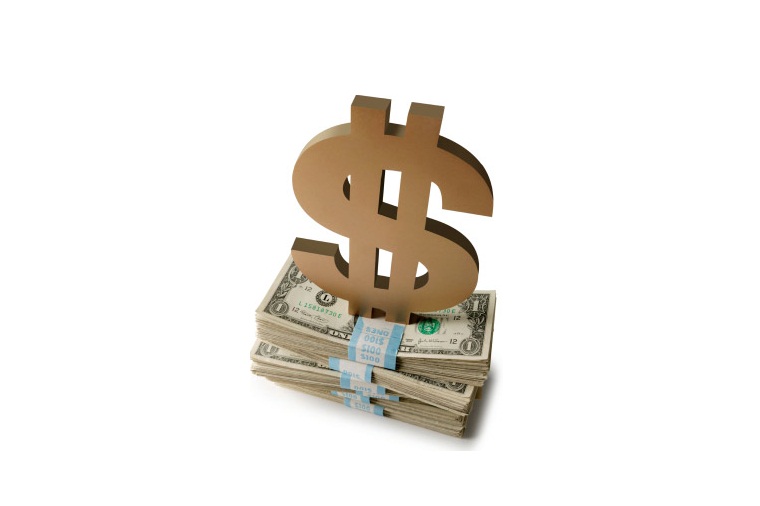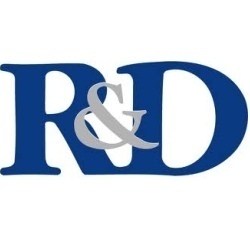
“Franchise royalty fees are too expensive!” . . . Are you sure about that? I’ll help you figure it out.
April 8, 2016 11:01 am Leave your thoughts
Franchise royalty fees might not be as expensive as you think.
In any given situation, there are good reasons to pass up buying a franchise business, but I get worried when someone says they didn’t buy a franchise because “The franchisor’s royalty fee was too high.”
Passing on a franchise opportunity because you don’t want to pay a royalty fee, or because you can’t justify the royalty fee, or because an advisor (i.e. your accountant) tells you the royalty fee is too high, might be a costly mistake.
A Royalty Fee May Save Your Business
Here’s why: When it’s up to you to make all the decisions relative to starting, operating and building a business, there’s a pretty good chance you’ll fail.
All the statistics say the same thing: Most business start-ups fail in America.
So if a franchise royalty fee could prevent you from failing in your new business, a business that may have cost you $50,000 to $500,000 or more to get started, would you still pass on buying a franchise because of the royalty fee?
The correct answer is: “It depends.”
It depends on the amount of the royalty fee (because, in fact, some royalty fees are indeed too high), but mostly it depends on what the royalty fee provides to the franchisee.
Back Up A Moment
Why do so many businesses, including franchised businesses, fail?
The “experts” will tell you it’s because the owners run out of money, but generally these are experts who have never operated a business (they’re the “experts” you met in college and called “professors”) and they don’t always know what they’re talking about.
Actually, in this case the experts are not totally wrong. When owners run out of money businesses get shuttered (duh!), but that answer isn’t helpful. Real experts explain why owners run out of money!
Who’s Running Out Of Money?
Given that billions of dollars are invested annually in America to start new businesses, how is it possible that so many businesses run out of money and fail? And according to U.S. Government data, at least 50% of all new independent business start-ups fail every year in America!
It doesn’t make sense. That much money and people are running out of money? That much money and people are running out of money when many businesses (read Start Small, Finish Big) get started on a financial shoestring?
I don’t believe it, and you shouldn’t either.
The E-Myth Explains Why
Author Michael Gerber, who wrote The E-Myth: Why Most Small Businesses Don’t Work and What To Do About It, may have been the first expert to tell us why businesses really fail. It’s not for lack of money. It’s because the owners are stuck working “in” the business and not “on” the business.
“The owners are so busy doing, doing, doing,” says Gerber, “that they have no time to focus on what’s important, which is figuring out how to make the business successful.” Before they know it, the owner runs out of money and the business must be shuttered.
Helping Franchisees Succeed
Franchisees are fortunate because they don’t have to worry as much about how to make the business successful. They don’t need to stay busy “doing, doing, doing.”
In figuring out how to make the business successful, franchisors have already done the “doing, doing, doing”. The result is an operating system. It’s a roadmap to make the business successful.

“The roadmap is the primary reason why franchises succeed,” explains Dr. John P Hayes.
In fact, the roadmap is the primary reason why franchises succeed.
Franchisees (with good franchise systems) aren’t worried about how to make the business work. They don’t have to figure that out. They don’t have to experiment or re-invent the wheel. By following a franchisor’s roadmap, the franchisee expects the business to work.
Without that roadmap, however, you’re probably doomed. Unless you’ve got an unlimited amount of money to invest and you don’t care about return on investment, and/or you’re brilliant, you’re going to be part of the 50% that fail in the first year of operating a business in America.
But why become part of that statistic when you can avoid it?
And you can avoid it by paying a royalty fee.
So the question is: How much is too much? When is a royalty fee too expensive?
What Do You Get For The Royalty Fee?
Before I can answer those questions, I’d like to tell you what a royalty fee provides to franchisees.
I recommend to my students that they always ask the franchisor, “What do I get for the royalty fee?”
It’s an important question, and yet it’s amazing how seldom prospective franchisees ask it. Of course, the downside for the franchisor is losing franchisees. Many prospective franchisees won’t tell the franchisor that the royalty fee is too high, in their estimation. They’ll simply pass on buying the franchise. Therefore, good franchisors tell the prospective franchisees what they get for the royalty fee – a good time to do this is during Discovery Day.
You’re Getting A System
First and foremost, the royalty fee underwrites the cost of the franchisor’s “doing, doing, doing.” Some franchisors spend years inventing and perfecting their operating system before selling a franchise. But most franchisors develop a system that works (hopefully), and then they continue to tweak it. The real problem is the franchisor that doesn’t have a tested system, but intends to develop one after selling franchises. That’s just wrong.
The initial franchise fee, which I discussed in a previous blog, gives the franchisee access to the franchisor’s roadmap, or system. But since the roadmap isn’t static, and it needs to be continuously fine-tuned year after year, royalty dollars underwrite that additional development.
You Get Training
But what good is a roadmap without training? Most franchisors train franchisees for at least a week, and some for 20 to 60 days. Again, the initial franchise fee pays for the initial training, but training isn’t a once-and-done proposition. Training occurs continuously in most franchise companies, and it’s never free.
Every franchisor discovers, sooner or later, that not all franchisees are created equally. Some are better than others. Some require just a few days’ training and they’re good to go. Others need endless training time and they’re still not good to go.
You Get Ongoing Support
So here’s the third benefit that’s covered by the royalty fee: support. Some franchisees, even good franchisees, are going to need help beyond the training classroom. It’s not unusual for franchisees to “fall apart” once they leave training, return home, and open their business on Monday morning.
“It’s as though I forgot everything that you told me,” the franchisee says to the franchisor. “I arrived at my shop first thing in the morning and I just couldn’t remember what to do first. Help!”
And that’s where the franchisor’s support team earns its money, which comes from royalty fees!
Depending on the size and complexity of the franchise, some franchisors may get away with phone support and/or Internet support, but most franchisors require a field staff to provide on-site support to franchisees. And that’s costly.
The support team travels to the franchisee’s site, spends a couple of days – possibly a couple of weeks – and reinforces everything that was taught during training in the classroom. This is a valuable service . . . many people will not learn from the training manual but from a kindred spirit who takes them by the hand and shows them, for a day or a week, what to do, when to do it, how to do it, etc.
Generally, franchisors provide support as needed, and some franchisees need more support than other franchisees. It’s a great benefit to know that if you’re stuck, or if suddenly the wheels fall off your business and you don’t know why or how to re-attach them, the franchisor will send one or more support staff to assist you. Without that support, and without the know-how, how long will you last in business?
What’s All That Worth?
So the royalty fee covers the system itself (at least the tweaking), the ongoing training, and the ongoing support.
Let me ask you: What’s that worth?
But wait, don’t answer that yet because there’s something else you need to know, and this is another huge benefit.
Markets change constantly especially as technology, geography, demographics, and consumer expectations change. Some changes render a product or service of less value or no value. If you’re still selling fax machines, how you doin’?
How Do You Deal With Change?
Small business owners – which describes franchisees – are the last to understand what change is doing to their business. Small business owners are too busy paying attention to today to worry about tomorrow.
So when Congress passes legislation that will negatively impact their business, small business owners miss the news because they were pre-occupied. Or as market demographics declined or appreciated in the last five years, small business owners overlooked the significance of the change because they were pre-occupied. Paying attention to what consumers will want in two years isn’t of importance to small business owners because they’re consumed by the consumer’s preferences at the moment.

Franchisors provide the R&D that you don’t have time to do!
So who’s in charge of Research & Development?
When I ask that question at my seminars and webinars, the small business owners laugh. Some think, R&D is for Fortune 500 companies. Some think R&D isn’t something they’re capable of doing. But savvy franchisors know differently. R&D is a necessary step in the development of a successful business, small or large.
So who’s doing it?
And who’s paying for it?
In most good franchise companies, the franchisor is doing it – there’s an R&D staff – and the franchisees pay for it via their royalty fees.
Worry Free R&D
And what a benefit to the franchisees. They get R&D without having to worry about it. Without having to pay attention to the future changes. Without having to become lobbyists. Without having to study consumer dynamics.
Now I need to ask you: What’s that worth?
Royalty fees are generally in the range of 5% to 10%. So for every dollar you take in at the cash register, or via your online account, you’re going to pay 5 to 10 cents to the franchisor in the form of a royalty fee.
“Too much!” says the accountant. Oftentimes it is the accountant who discourages the purchase of a franchise. “You don’t have to pay all that money just to sell pizza (or paint houses, or sell hamburgers, or signage, or shoe repair, or whatever). You can do it on your own.”
A Royalty Protects You
Famous last words. Those are the words that add to the heap of the 50% who fail at business start-ups in America every year.
Look: Franchising is a way for you to learn how to operate a business successfully. You’ll have to pay a franchise fee for that opportunity. And then you’ll have to pay an ongoing royalty fee to continue to get the benefits provided by the franchisor.
It’s easy to figure out what it’s worth. Just add up the costs of the benefits I’ve outlined above – system development, training, support, research and development — and you’ll discover that you couldn’t possibly do it all on your own and still operate a successful business. You can try, but you will end up “doing, doing, doing” until you run out of money and shutter your business.
#
Dr. John Hayes does not sell franchises, but he helps franchise prospects discover franchise opportunities that make sense for them operationally and financially. Add your name to his list for a variety of valuable information.
Categorised in: Blog Articles, Buy a Franchise, Franchise due diligence, Franchise fees, franchise opportunity
This post was written by John Hayes
